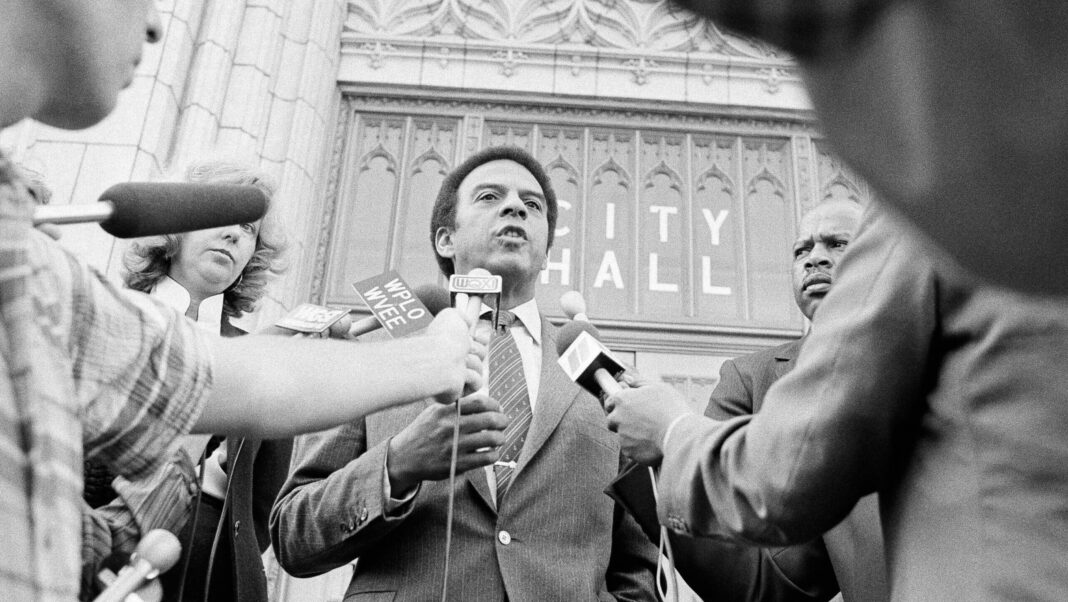In a powerful exploration of the lesser-known yet vital contributions to the Civil Rights Movement, former U.N. ambassador Andrew Young reflects on his experiences as a close aide to the legendary Rev. Martin Luther King Jr. During his tenure in the 1960s, Young often described his responsibilities as “the dirty work” of the movement—tasks that didn’t make headlines but were crucial for sustaining activism against racial injustice.
The phrase “dirty work” may evoke discomfort, but it captures the behind-the-scenes efforts, or “grunt work,” that drive significant historical change. Now at 93 years old, Young shares these poignant recollections in his upcoming documentary, “Andrew Young: The Dirty Work,” set to premiere on MSNBC this Friday at 9 p.m. Eastern. After hearing Young’s self-assessment as a behind-the-scenes figure, executive producer Rachel Maddow recognized an authentic narrative that needed to be told, anchoring the documentary around this intriguing theme.
Joining a Movement—And Handed a Stack of Mail
Young’s journey into civil rights activism began when he graduated from college and felt called to join King’s movement during a time of transformative change. In 1957, just two years after King rose to prominence with the Montgomery bus boycott, Young was thrust into a role where his first task involved writing replies to countless letters addressed to King. “He liked the way I answered them and began to ask me to do more,” he recalled. This pivotal moment marked the start of Young’s behind-the-scenes journey, where he often found himself out of the public eye.
Young candidly admitted, “With that kind of role, you didn’t get to take part in marches.” Instead of seeking recognition, he focused on fulfilling essential duties that would help propel the movement forward. A significant part of his job involved acting as an advance man for King’s campaigns, particularly notable during the fight against segregation in Birmingham, Alabama, in 1963.
Moving to the Spotlight from Behind the Scenes
In a world filled with tension and risks, Young initially believed he would continue to work behind the scenes, particularly after King’s assassination in 1968. However, as tragedy struck the movement, many became hesitant to lead. This gap compelled Young to eventually step into the political arena, where he initially faced setbacks but later won a seat in Congress. His ascension didn’t stop there; President Jimmy Carter later appointed him as the U.N. Ambassador, affirming his significant role on the global stage.
Through his experiences, Young espoused the idea that challenges often open doors to new opportunities. “I started bumping into people and they started giving me challenges,” he noted, illuminating a life that still seeks purpose and contribution at the age of 93. The stories Young shares offer invaluable insights into the tumult and struggle inherent in the fight for civil rights.
Maddow Sees Lessons for Today in Young Film
Rachel Maddow, recognizing the fortitude involved in civil rights work, found profound lessons to be learned from Young’s narration. She articulated how bravery is often romanticized, distancing it from the actual experiences of sacrifice and pain endured by activists. Young’s candid accounts reveal the inner conflicts faced by leaders in the movement, rejecting the notion that everyone always agreed on the path forward. This nuance reveals the complexity of activism, illustrating that while the destination can be clear, the journey is often fraught with disagreement and struggle.
Maddow further emphasizes the relevance of these historical lessons in today’s sociopolitical climate. “With what’s going on in the news right now, it’s never been more important to learn from those who participated in movements like the civil rights movement,” she stated, highlighting the necessity of understanding the collective efforts made for democracy against authoritarianism. For those wanting to contribute to social change, Maddow suggests that individuals identify their strengths to make a meaningful impact.
Young’s reflection in the film is quite poignant as he articulates, “I have lived much of the dream that (King) was speaking about.” Even at 93, he continues to feel a calling to share his experiences, believing that educating others on the arduous but rewarding paths taken in the struggle for civil rights remains vital to the ongoing fight for justice.



